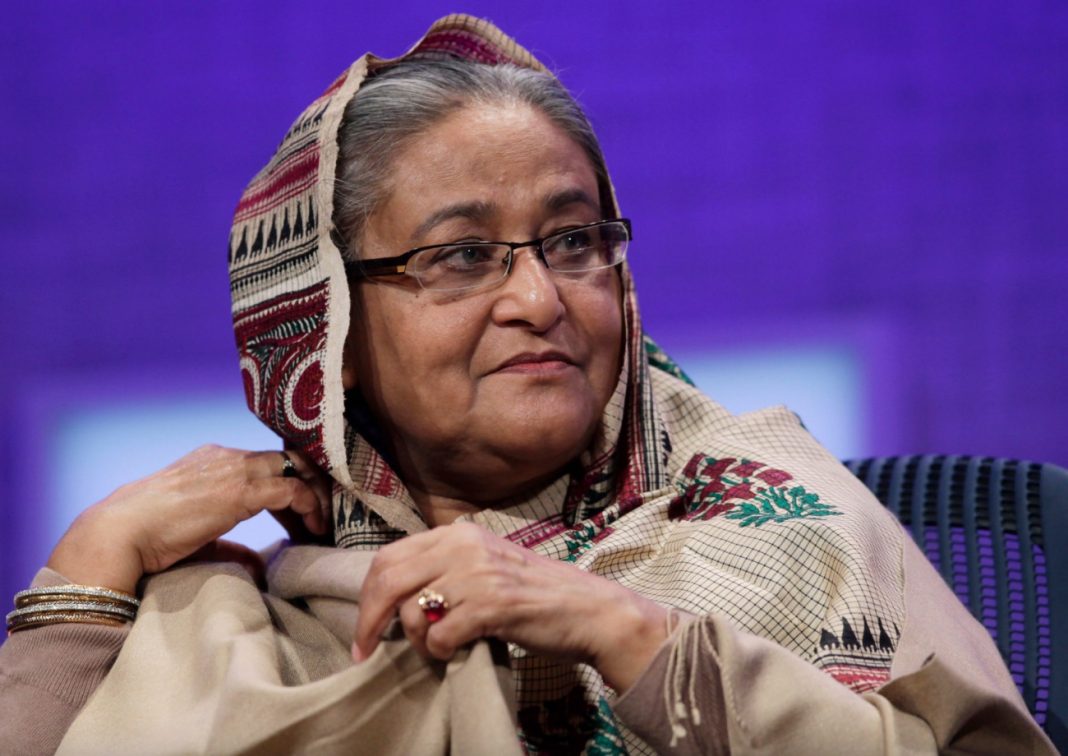DHAKA, Bangladesh – Bangladesh’s International Crimes Tribunal issued an arrest warrant on Thursday, October 17, 2024, for former Prime Minister Sheikh Hasina, who is currently in India, accusing her of involvement in mass killings during violent protests that erupted earlier this year.
The protests, which began as a movement against public sector job quotas, quickly escalated into some of the most lethal unrest the country has seen since its 1971 independence, resulting in over 700 deaths and numerous injuries.
The tribunal, led by Justice Golam Mortuza Majumdar, granted the arrest warrant following an appeal from prosecutors who argued that the investigation could not proceed without apprehending Hasina and other influential figures involved in the violence.
“We appealed to the court that if the accused, who are extremely influential, are not arrested, it will be impossible to conduct the investigation,” chief prosecutor Mohammad Tajul Islam told reporters after the tribunal’s decision.
“The court granted our petition and ordered the arrest of former Prime Minister Sheikh Hasina. It further directed that she be arrested and brought before this court by November 18.”
Hasina, who fled to India on August 5 as the violence intensified, had been facing growing opposition since the protests, which began as student-led demonstrations.
What started as a demand for reforms in public sector job quotas turned into widespread unrest, with protesters calling for the resignation of Hasina and accusing her of authoritarian rule.
After her departure, an interim government, led by Nobel Peace Prize laureate Muhammad Yunus, took control of the country, vowing to restore stability.
Since then, Bangladesh has seen the arrests of numerous Awami League leaders, and many senior members of the party have either gone into hiding or fled abroad.
To date, over 60 complaints have been filed against Hasina and other leaders of her Awami League party, accusing them of crimes such as enforced disappearances, murder, and mass killings in connection with the protests.
However, Awami League representatives have not made any public statements regarding the arrest warrant, as most of the party’s leadership is either incarcerated or in hiding.
Hasina’s son, Sajeeb Wazed, defended his mother in an interview with Reuters in August, saying, “My mother has done nothing wrong” and emphasising that she was ready to return to Bangladesh to face trial.
Bangladesh’s acting foreign minister, Mohammad Touhid Hossain, said the government is committed to bringing Hasina back from India within the one-month deadline set by the tribunal.
“The tribunal gave one month time. We will definitely try to bring her back in the meantime, we will do whatever it takes for us,” Hossain told reporters on Thursday.
The protests, which have become known as the “Gen Z revolution” due to the involvement of young student leaders, have left the country deeply divided.
A week after Hasina’s departure, protesters gathered near Dhaka University, demanding accountability for the deaths during the protests and justice for the victims.
The unrest has also resulted in increased scrutiny of the Awami League’s policies and its grip on power.
As the investigation continues, international observers are closely watching how the situation unfolds.
Many see Hasina’s case as a critical test for Bangladesh’s justice system and its future political landscape.







